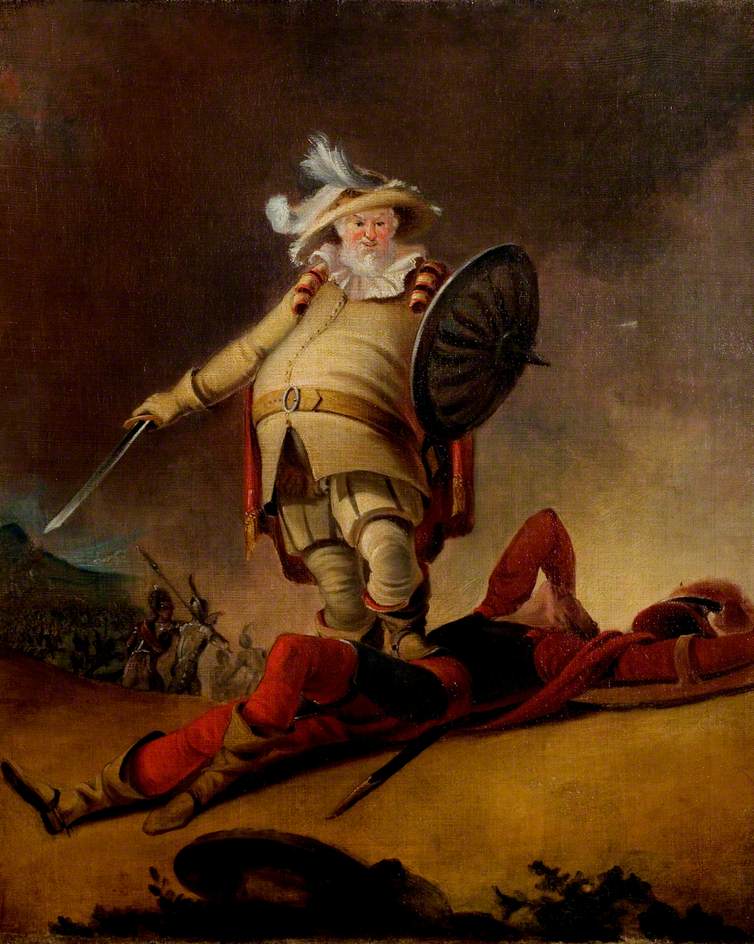Wednesday
Michael Gerson, the former George W. Bush speechwriter responsible for the “compassionate conservative” label, has just reminded me of Shakespeare episode that captures only too well how Trumpism dominates today’s GOP. In a Washington Post column, Gerson describes how Republicans must sign on to Trump’s “Big Lie” that he won the 2020 election to prove themselves faithful party members. “Knowingly repeating a lie,” Gerson says, “…is now the evidence of Republican fidelity.”
Elaborating on the dangerous terrain into which Republicans have ventured, Gerson writes,
[T]he lie of a stolen election is the foundational falsehood of a political worldview. Believing it requires Trump’s followers to affirm the existence of a nationwide plot against him and his supporters — a plot led by ruthless Democrats and traitorous Republicans, and ignored or endorsed by useless courts and a complicit media. The claim’splausibility is not the point.
Or as Falstaff puts it, “Lord, Lord, how this world is given to lying!”
It so happens that Falstaff here is pulling a Trumpian move, accusing others of what he himself is doing. His lie, furthermore, is just as outrageous as Trump’s. He claims that he has killed Hotspur when in fact he ran away and played dead. It has actually been Prince Hal who courageously and skillfully dispatched the leader of the enemy forces. Here’s their interchange:
Falstaff: There is Percy:
(Throwing the body down)
if your father will do me any honor, so; if not, let him kill the next Percy himself. I look to be either earl or duke, I can assure you.
Prince Hal: Why, Percy I killed myself and saw thee dead.
Falstaff: Didst thou? Lord, Lord, how this world is given to lying! I grant you I was down and out of breath; and so was he: but we rose both at an instant and fought a long hour by Shrewsbury clock. If I may be believed, so; if not, let them that should reward valor bear the sin upon their own heads. I’ll take it upon my death, I gave him this wound in the thigh: if the man were alive and would deny it, ‘zounds, I would make him eat a piece of my sword.
I once had a chance encounter with a vet (in Union Square, New York City) who, after learning I was an English professor, mentioned to me that he hated Falstaff for this incident. (For him, Falstaff is guilty of “stolen valor,” which often takes the form of wearing unmerited medals.) For our present purposes, however, it’s an instance of how someone can brazen out an outright falsehood when everyone around knows it’s a lie.
In the play, Hal just laughs the incident off, which is a sign of his new-found maturity, not to mention his strong sense of self. Unlike Trump, he doesn’t need to pump himself up with undeserved honors:
Lancaster: This is the strangest tale that ever I heard.
Hal: This is the strangest fellow, brother John.
[To Falstaff] Come, bring your luggage nobly on your back:
For my part, if a lie may do thee grace,
I’ll gild it with the happiest terms I have.
Hal laughs off Falstaff as many, for years, laughed off Trump—say, for his Obama birth lie or his large inauguration lie. When a major political party chains itself to your falsehoods, however, it’s no longer a laughing matter. As Gerson concludes,
[I]t is the elected Republicans who are lying with open eyes, out of fear or cynicism, who have the most to atone for. With the health of U.S. democracy at stake, their excuses are disgraceful.
If Falstaff were to claim the throne based on his having killed Hotspur, Hal would take him a bit more seriously.


